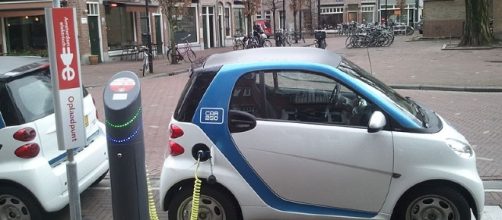It looks like the French government of Francois Macron is serious about giving the mandates of the Paris Climate Accord a go. Nicolas Hulot, the environment minister, has announced that the sale of gasoline and diesel cars within France will be banned by 2040. Henceforth, only hybrids and electric vehicles will be permitted to be sold within the boundaries of The French Republic. Whether such a ban is achievable is open to question.
Why is France undertaking this measure?
It is all about climate change, of course. Many people have convinced themselves that CO2 emissions are causing the Earth’s temperatures to rise inexorably.
If the process is not stopped, then catastrophe awaits -- that includes the inundation of coastal regions as the polar ice caps melt, extreme weather, and insupportable temperatures in the equatorial regions.
Automobiles that run on gasoline and diesel emit a great deal of CO2 and are seen as contributing to climate change. If one bans these types of vehicle, the theory goes that the amount of CO2 emissions will be significantly reduced. On the other hand, if Electric Cars are recharged on a power grid that includes fossil fuel burning plants, the purpose is somewhat defeated.
Will the electric car mandate work?
Right now electric vehicles and hybrids are more expensive than conventional automobiles that run on gasoline or diesel.
Hence, fewer people are buying the environmentally friendly vehicles. However, some analysts suggest that electric cars will be on par price-wise with gasoline cars within a few years and will keep going lower. Electric cars should be cheaper to operate since charging and maintaining them will cost less. Also, self-driving cars are likely to change the way people regard motor vehicles, not as things to be owned, but rather, a service to be summoned, just like an Uber driver.
Therefore, it is possible that Hulot’s mandate is going to be a policy that makes no difference. The advancement of technology is going to make the internal combustion engine obsolete anyway, no matter what bureaucrats in Paris or any other world capital mandate. The future, after all, is being developed in laboratories and factories, not in the offices of bureaucrats and politicians.
If people get around in France in the year 2040 by summoning self-driving electric cars on their smartphones, all Hulot may have done is position his department to take undue credit for a process that is bound to happen anyway.


